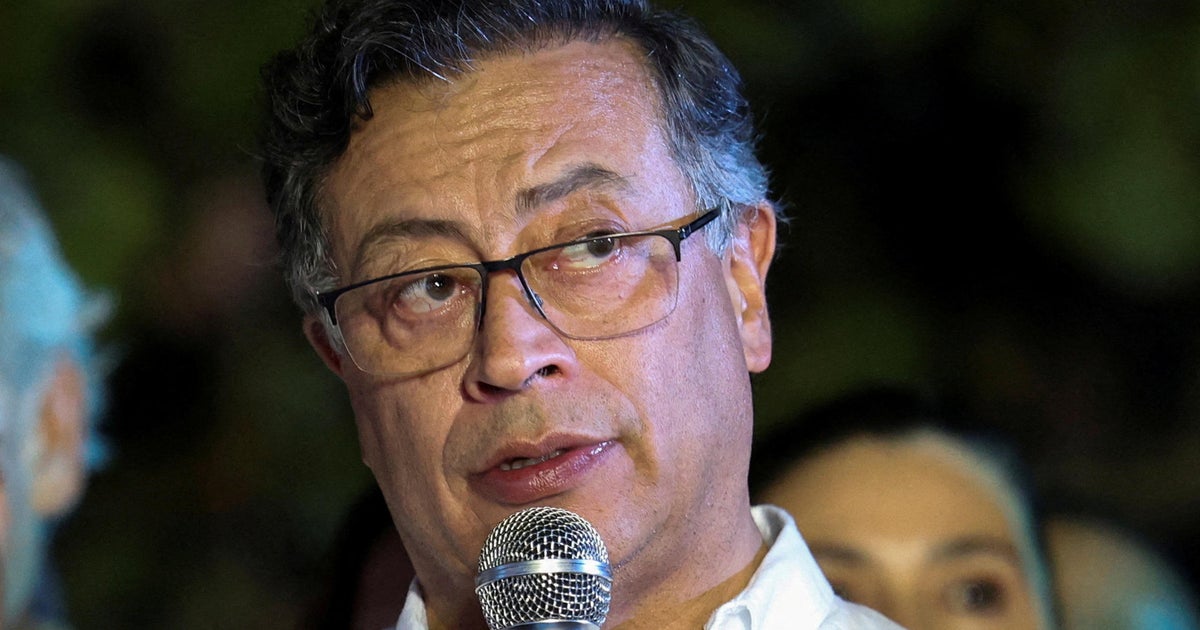**Colombian President Gustavo Petro Faces Refueling Challenges Amid U.S. Sanctions**
Colombian President Gustavo Petro encountered difficulties refueling his plane during a trip to the Middle East, a situation attributed to sanctions imposed by the United States, his government revealed on Thursday.
Interior Minister Armando Benedetti explained that the presidential plane made a scheduled stop in Madrid to refuel en route to Saudi Arabia. However, officials at Barajas Airport—Spain’s largest airport—refused to supply fuel for the aircraft. After negotiations with Spain’s left-wing government, the plane was able to refuel at a military base.
The challenges stem from sanctions placed on President Petro by the administration of former U.S. President Donald Trump. The U.S. Treasury’s Office of Foreign Assets Control (OFAC) added Petro to its sanctions list, accusing him of enabling drug cartels.
“Since President Gustavo Petro came to power, cocaine production in Colombia has exploded to the highest rate in decades, flooding the United States and poisoning Americans,” stated Treasury Secretary Scott Bessent last week when announcing the sanctions.
Alongside Petro, his wife Veronica Alcocer, eldest son Nicolas, and Interior Minister Benedetti have been banned from traveling to the United States. Additionally, any assets they hold within U.S. jurisdiction have been frozen. U.S. companies, or those with U.S. capital, are also prohibited from conducting business with them.
Writing on X (formerly Twitter), President Petro extended his gratitude to the “kingdom of Spain” for assisting him in reaching Riyadh at the start of his three-country tour, which will also include visits to Qatar and Egypt.
Interior Minister Benedetti highlighted the difficulties imposed by the sanctions on routine services, explaining that, “The companies that sell fuel or provide cleaning services or the boarding stairs (at airports) are almost always American. They refused to provide the (refueling) service because of the OFAC (list).”
The sanctions against Petro, imposed on October 24, followed several months of tension between the Trump administration and the Colombian leader. The disputes included disagreements over U.S. migrant deportations and U.S. missile strikes aimed at suspected drug boats near South America’s coast.
In an exclusive interview with CBS News earlier this month, Petro alleged that some casualties of those U.S. strikes on alleged drug vessels were innocent civilians. He also reiterated his accusation that the attacks violated international law. The White House, however, has denied that any innocent civilians were harmed during the strikes.
Petro, a former left-wing guerrilla leader, has vehemently denied any involvement in drug trafficking. He argues that the cocaine trade is primarily driven by demand in the United States and Europe rather than supply within Colombia.
Last month, the U.S. State Department revoked Petro’s visa after he took part in a New York protest where he called on American soldiers to disobey orders from President Donald Trump.
—
*This development highlights the ongoing diplomatic tensions between the United States and Colombia’s current administration, amid complex issues related to the drug trade and international relations.*
https://www.cbsnews.com/news/colombia-president-trouble-refueling-plane-us-sanctions-gustavo-petro/
